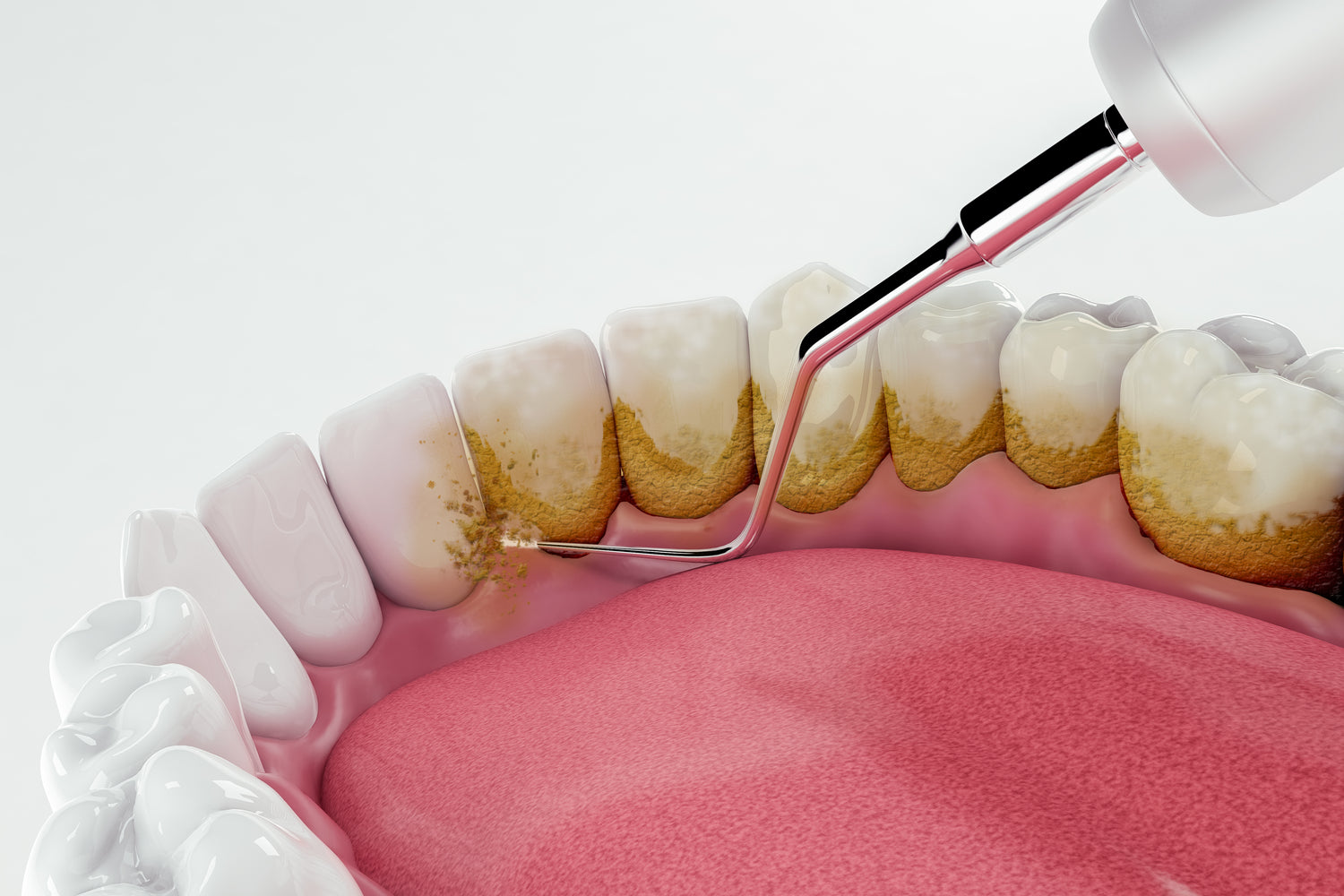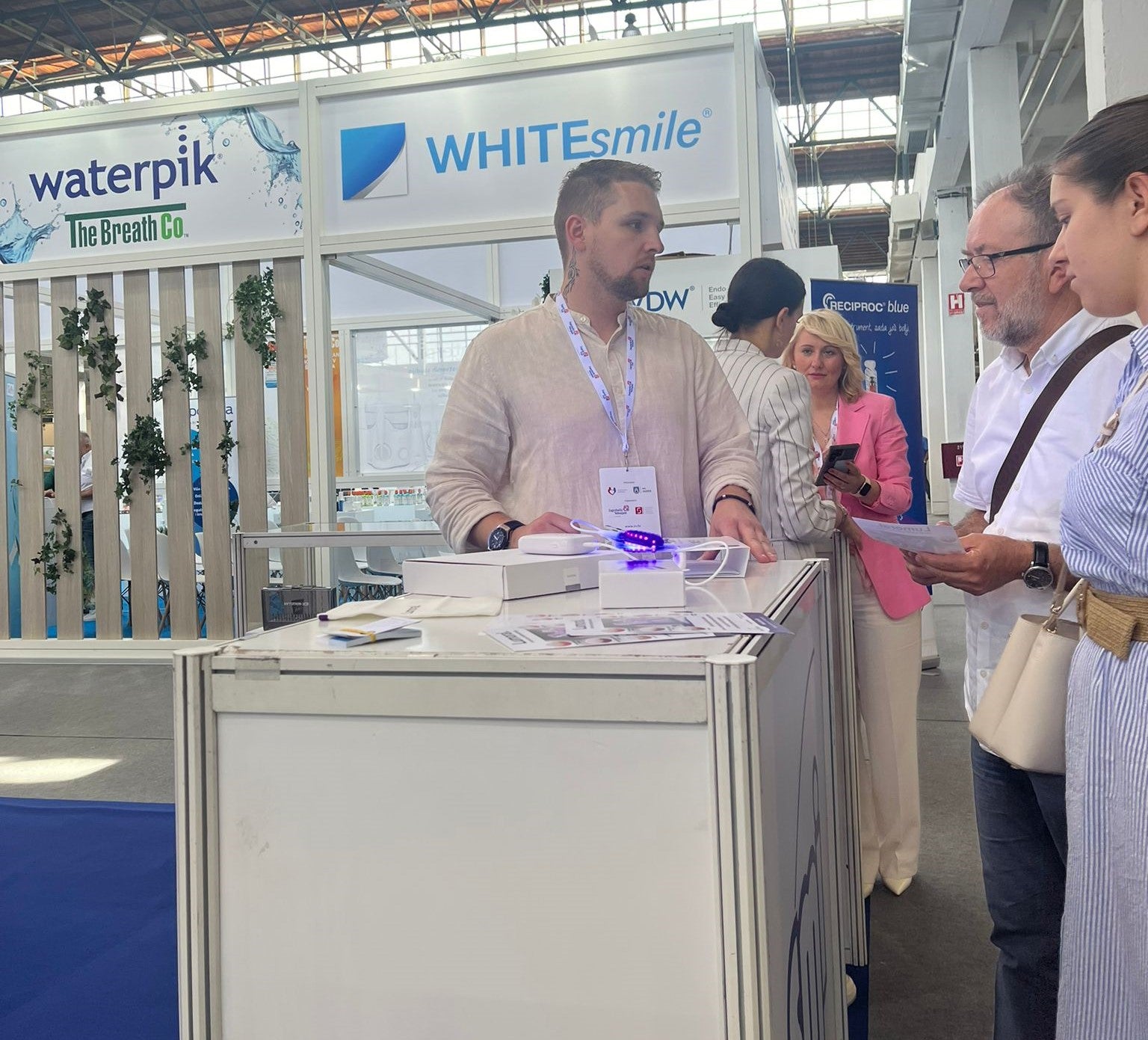Tartar is mineralised plaque that forms on the surface of the teeth, usually as a result of poor oral hygiene. Plaque is made up of bacteria, food debris and saliva proteins. If plaque is not regularly removed by brushing and cleaning between teeth, it can harden and become tartar. Tartar is rough and can cause gum irritation, lead to gingivitis and contribute to the development of other oral health problems, such as periodontitis.
How common is tartar buildup?
Tartar is a very common oral health problem. Almost all adults have tartar buildup at some point in their lives, and the incidence increases with age. Here are some important facts to help you understand how common tartar is:
Adults: Most adults will get tartar at some point. The risk increases with age as plaque builds up over time, and possibly oral hygiene can also deteriorate, for example as fine motor skills in the hands deteriorate.
Adolescents and children: Although tartar is more common in adults, it can also occur in adolescents and children, especially if oral hygiene is poor.
Risk groups: Certain groups of people are more prone to developing tartar. These include smokers, diabetics, people with dry mouth, and people with certain types of eating habits (e.g. high consumption of sugary and starchy foods).
Tooth location: Plaque is usually more likely to form on the mandibular incisors and maxillary molars, as the salivary glands are located close to these teeth and saliva can contribute to plaque mineralisation.
How can I prevent the formation of tartar?
Regular and careful oral hygiene is the best way to prevent tartar. Tartar cannot be completely prevented, but the amount and effects can be significantly reduced through good daily oral hygiene and professional cleanings.
Regular brushing: brush your teeth twice a day for at least two minutes at a time with a fluoride toothpaste. Use a soft toothbrush and brush thoroughly on all tooth surfaces, including the gum line.
Use a floss, brush or other interdental cleaning tool daily to remove plaque between teeth where the toothbrush cannot reach.
Healthy diet: avoid sugary and starchy foods and drinks that contribute to plaque formation. Eat healthy foods, such as fruit and vegetables, that promote saliva production and help keep your mouth clean.
Regular dental visits: go to your dentist regularly for check-ups and cleanings. A dental hygienist can remove tartar that you cannot remove yourself at home.
Complementary treatment: regular use of the Lumoral antibacterial treatment reduces the amount of bacteria in your mouth and helps prevent plaque and tartar build-up.
Why do you need to remove tartar?
‘When the tooth surface is rough due to tartar, it is easy for new bacteria to accumulate on the surfaces of the teeth. These bacteria, together with tartar, irritate the gums and cause gingivitis. You cannot remove tartar yourself at home, but dentists and dental hygienists give patients an anti-infective treatment to remove tartar and reduce the amount of bacteria in the gum pocket.’ Viivi Soikkeli, dental hygienist at Hampaasi Dental Clinic in Helsinki, Finland, explains.
Lumoral antibacterial treatment is used as a complement to mechanical tooth cleaning.
‘Lumoral treatment is based on the fact that it effectively reduces the amount of plaque in the mouth, while also reducing the build-up of plaque and tartar,’ says Soikkeli.
Studies have shown that regular antibacterial treatment as an adjunct to conventional non-surgical standard treatment reduces gum inflammation and improves oral hygiene and the healing of deep pockets in chronic periodontitis compared to conventional treatment.
Antibacterial treatment has also been shown to prevent and help reduce inflammation in the tissues surrounding implants. It is suitable for everyone, but light-activated antibacterial treatment is considered most effective for patients who need to improve their oral hygiene.
Unlike conventional antibacterial mouthwashes, which affect the whole mouth and also remove the good bacteria that we need, Lumoral treatment targets only plaque, reducing bacterial and tartar build-up.
‘I recommend Lumoral especially to customers who have a lot of tartar,’ says Soikkeli.



Leave a comment
This site is protected by hCaptcha and the hCaptcha Privacy Policy and Terms of Service apply.